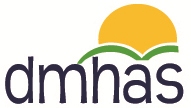Julienne Giard, LCSW, Director, (860) 418-6946
julienne.giard@ct.gov
The Community Services Division is the “operations” arm of the DMHAS Office of the Commissioner (OOC). Regional monitoring staff maintain regular contact with the Department’s private not for profit behavioral health service contractors. Funding application reviews, contract oversight and on-site visits are core functions that ensure ongoing communication, quality management and troubleshooting issues of concern for our mutual consumers in recovery. In addition, CSD staff provide technical assistance to contractors, assist with connecting individuals and family members to services and investigate complaints. New programs and initiative implementations are overseen by CSD staff. CSD manages DMHAS’ Community Call Line and assists individuals and family members with an array of behavioral health concerns. The CSD Director is the Commissioner designated State Opioid Treatment Authority (SOTA), and as such, serves as the state’s liaison with the federal agency that regulates opioid treatment services.
Critical Incident Data Collection
The reporting and review of critical incidents is an important component of the ongoing evaluation and improvement of the quality of care and services provided by DMHAS-operated and funded agencies and programs. The Community Services and Evaluation, Quality Management and Improvement (EQMI) Divisions are responsible for the coordination of this process.
Critical incidents, as defined by The Connecticut Department of Mental Health & Addiction Services Commissioner's Policy Statement Chapter 6.26, are incidents that may have a serious impact on DMHAS clients, staff, funded agencies or the public, or may bring about adverse publicity. There are several routes by which critical incidents are reported to the CSD at the Office of the Commissioner:
1) DMHAS-operated Local Mental Health Authorities (LMHA): report incidents related to DMHAS-operated programs and affiliated private-not-for-profit agencies funded by DMHAS for mental health and/or dual diagnoses programs;
2) Private-not-for-profit LMHA’s: report incidents related to mental health and/or dual diagnoses programs operated directly or by subcontract;
3) Private-not-for-profit, substance abuse treatment agencies: report incidents related to their programs that are funded by DMHAS.
When a facility becomes aware of a critical incident, verbal notification is expected within three hours to either the Office of the Commissioner Regional Manager or state-operated Local Mental Health Authority for incidents of a very serious or high profile nature such as an untimely death of a client, alleged client abuse by a staff member, an alleged serious crime by a client or staff member, an AWOL or a program evacuation.
After normal business hours or as directed by the Critical Incident Report Line, a verbal report is made by calling the switchboard at Connecticut Valley Hospital at 860-262-5000 and requesting that the CVH Switchboard contact the Manager who is on-call. Critical incidents that occur within DMHAS' Young Adult Services (YAS) Programs should be called in directly to DMHAS' YAS staff. An electronically submitted written report is required within one business day.
Critical incident follow-up reviews are conducted by the reporting agency within 30 days of the incident. This review is expected to focus on the causative factors and may result in the development of a corrective action plan that would reduce the risk of reoccurrence of a similar event. Written accounts of these reviews are faxed to CSD, checked for completeness and entered into the critical incident database.

